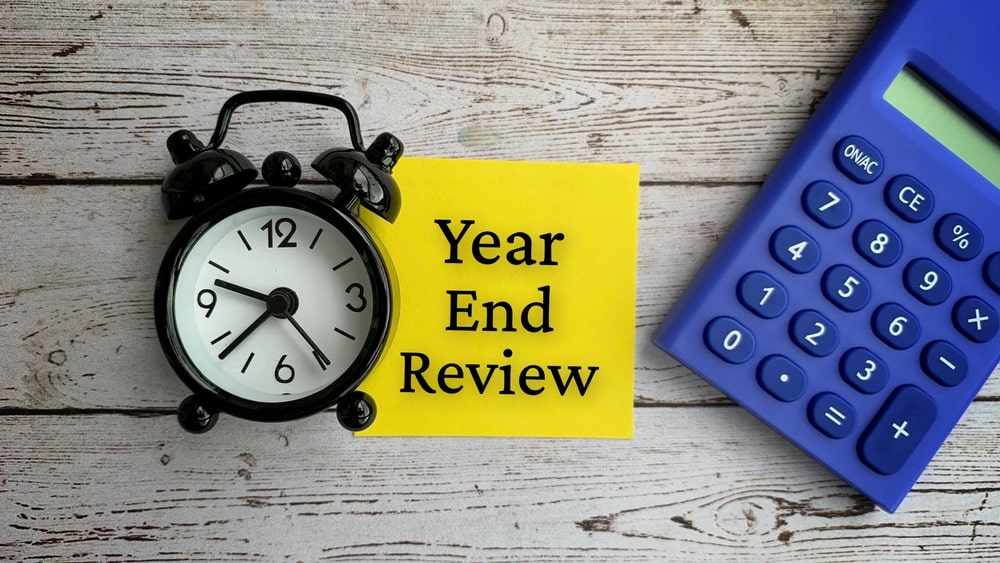
For many, December is a time for celebrating, shopping, gift giving, and gathering with family and friends. It can also mean taking a break from work and allowing time for reflection. This year, consider carving out some down time over the holidays to perform a year-end financial review. Focusing on these items is a good way to head into the New Year, and a positive step in prioritizing the health of your financial future:
- Revisit goals – setting goals for the short-term, mid-term, and the long-term can help provide vision and motivation. Did you set goals for 2024? How did you do? If you didn’t make progress, what can you do differently?
- Spending – Review your spending over the past year. Does your spending reflect your priorities? If not, make a plan to adjust your spending for 2025. If you aren’t tracking expenses, consider using a budget app like PocketGuard or YNAB to track your expenses. HTG clients also have access to eMoney’s spending tracker. Please reach out to your advisor if you wish to explore eMoney’s spending and budgeting tools.
- Savings – Set targets for how much you would like to save in 2025. If your rainy-day fund is low (it should cover about 3-6 months of expenses), focus first on building up this fund. Make sure that your retirement and education contributions are consistent with your savings goals. Consider setting up automatic monthly transfers to a savings, education, or retirement account to ensure that you attain your goals.
- Company Retirement Plans – Have you maximized your retirement plan (i.e. 401(k), 403(b) plans) contribution for the year? If not, can you contribute an additional sum through a bonus paid before year-end? Check your contribution rate and make sure that your periodic contributions from your paycheck will allow you to maximize your pre-tax contributions for 2025 ($23,500 per individual plus $7,500 catchup contribution if you are 50 or older. Starting in 2025, a higher catch-up contribution limit applies for employees aged 60, 61, 62 and 63 who participate in these plans. For 2025, this higher catch-up contribution limit is $11,250 instead of $7,500.) Verify that your asset allocation in your retirement plan is consistent with your financial plan.
- Beneficiaries – Log on to your custodian’s website (e.g. Schwab, Fidelity) and check that your beneficiary information and account titling is correct and consistent with your estate plan.
- Taxes –Check the withholding rate on your pay stub and consider whether adjustments to your withholding rate are necessary for next year.
- Insurance – Review your insurance policies and coverage, considering the purpose for your insurance coverage and whether the levels are appropriate. If you aren’t sure whether adjustments are necessary, reach out to your financial advisor.
- Estate Planning –Locate your will, powers of attorney and advanced directives. Are they up to date? Do they properly reflect your current intentions? If not, reach out to your attorney and schedule an appointment.
- Credit Report – If you haven’t reviewed your credit report recently, consider ordering your free credit report. Review the reports to ensure that the information is correct and take the time to close any credit cards that you aren’t using.
- Get Organized – Is all of your financial information organized and accessible? If you were to be incapacitated today, could a family member or close friend access your accounts, understand which bills need to be paid and understand how your financial information is organized? If not, start getting organized and share your organizational approach with a trusted family member or friend. Consider using a password manager (such as LastPass or mSecure) to ensure that all your passwords are secure and organized.
Spending time on your financial health this holiday season may just be the best gift you can give. Be good to yourself and your loved ones–you won’t regret it!